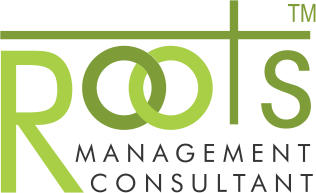The ISO/TS 22163:2017 is owned by ISO. It contains the requirements of the ISO 9001:2015 Standard and the supplemental rail-specific requirements. The IRIS Certification™ rules:2017 are owned by UNIFE and contain all the relevant rules relating to assessment methodology and the certification process.
Since May 24th, 2017, the ISO/TS 22163:2017 is officially published by ISO.
Information on IRIS
Promoted by UNIFE and supported by operators, system integrators and equipment manufacturers, IRIS (International Railway Industry Standard) complements the internationally recognized ISO 9001 quality standard introducing rail specific requirements.
IRIS is modelled on similar quality standards already in place in the aerospace, and automotive industries and it aims at the avoidance of multiple business management system auditing and therefore increases cost efficiency.
Objectivity and transparency are guaranteed by only using approved and independent certification bodies, known and recognized in the industry.
The IRIS certificate will replace individual management system evaluations by at least the four founders of this initiative (Alstom Transport, AnsaldoBreda, Siemens Transportation Systems and Bombardier Transportation).
Background
For the railway sector, the liberalization of European rail transport poses a particular challenge. Due to the increasing competitive pressure, especially in the EU’s goods market, what the railways need most are “ready to run” transportation systems that meet the different requirements of the individual countries along the main intercontinental routes as well as complying with the restrictive regulatory requirements. What railway operators expect of the railway supply industry is competitiveness, proved solution for cars, facilities and operating equipment that meet the high quality of standards required for every day use.
IRIS has set the standard for these global rail business requests. Its main objective is to improve the quality in the rail sector by reduction of efforts and costs.
IRIS BENEFITS
The successful implementation of IRIS creates a win-win situation for all stakeholders, be they equipment manufacturers, system integrators, operators or business partners. The goals of an integrated system work for all.
Equipment Manufacturers
The equipment manufacturers are able to improve their quality level and therefore promote a greater quality image. This contributes to secure a competitive future: they become more valued and visible on the market.
Through the IRIS web database they are able to enter and update their data.
After certification, this information may be made available to system integrators and prospective clients, on approval of the audited company.
Equipment manufacturers are able to save time by only having to apply once for the certification, for both ISO 9001 and IRIS at the same time.
System Integrators
Transparent requirements are acceptable and applicable to all parties, and become an integral part of the management systems in the participating companies.
This results in improved quality among the various production sites of the system integrators.
A uniform quality standard considerably simplifies the process of evaluating and approving suppliers, removing the need for system integrators‘ own approval audits.
They are able to access accurate and reliable data from the common IRIS web database.
Operators
Operators benefit from the improvements across the entire supply chain, with enhanced equipment, rolling stock and signalling. They are able to rely on a demanding, internationally recognized standard for the whole industry. As a result, quality, safety and reliability increase as well as business management processes of the industry. Operators have also actively
contributed to Revision 02 by highlighting necessary implementations.

